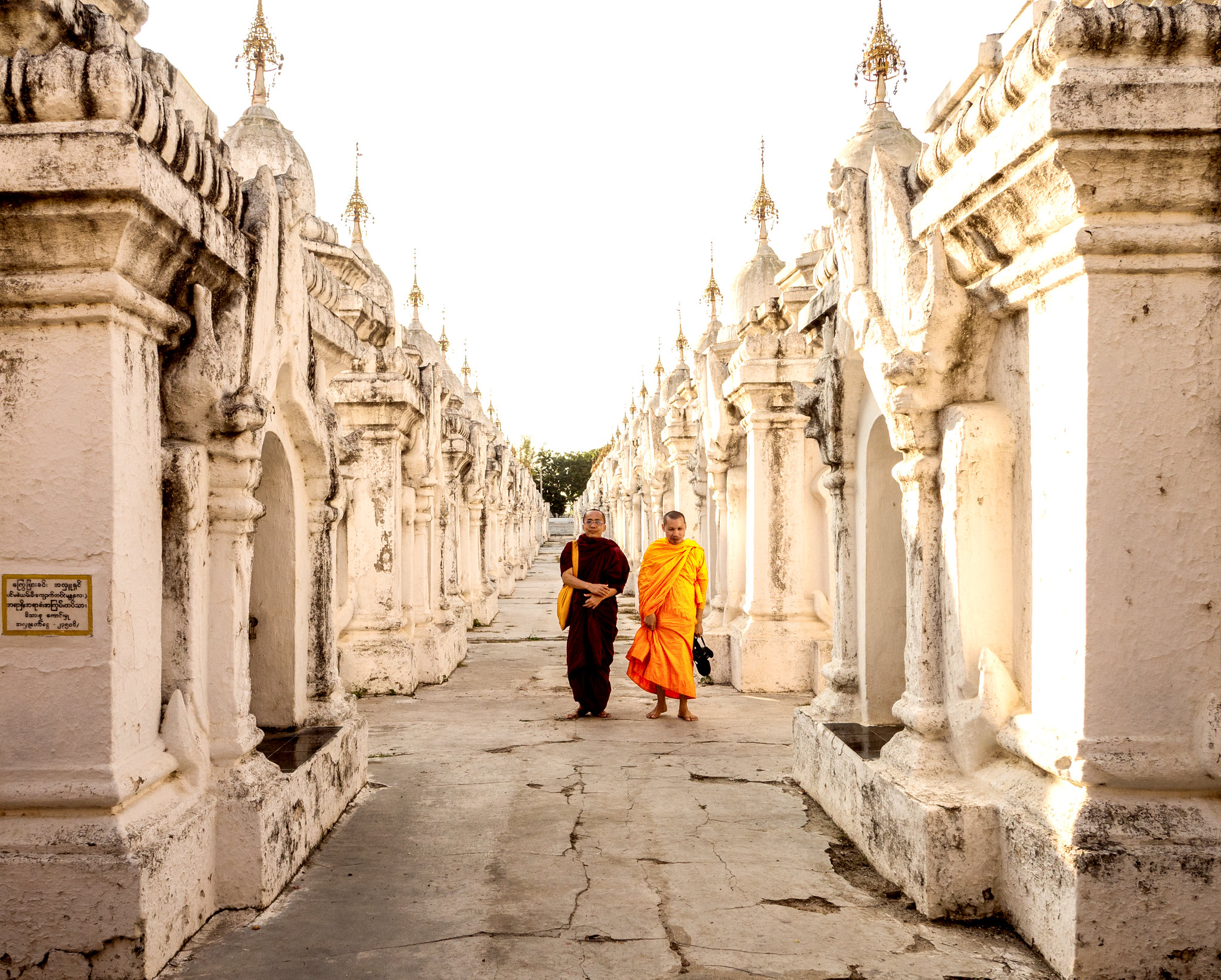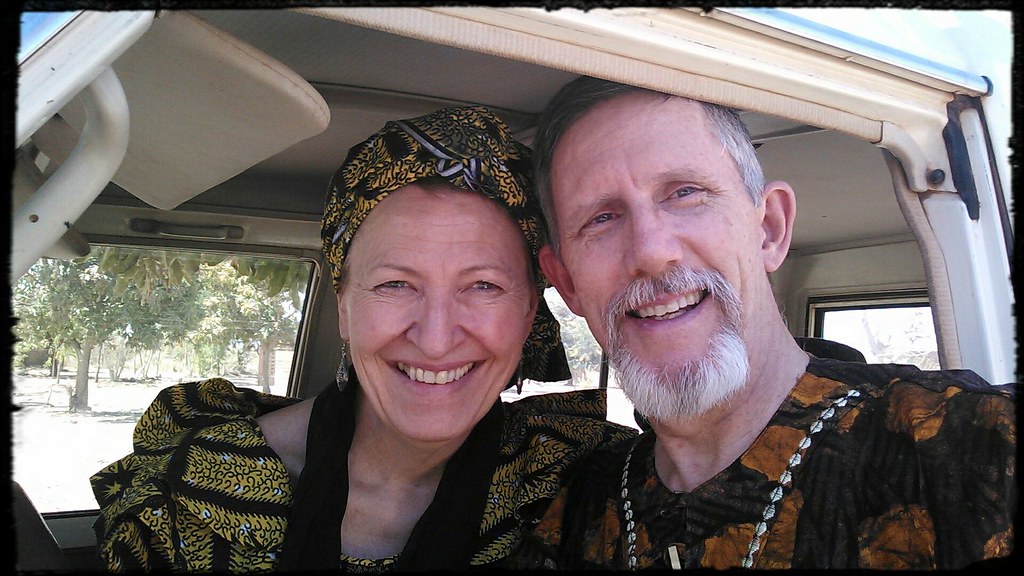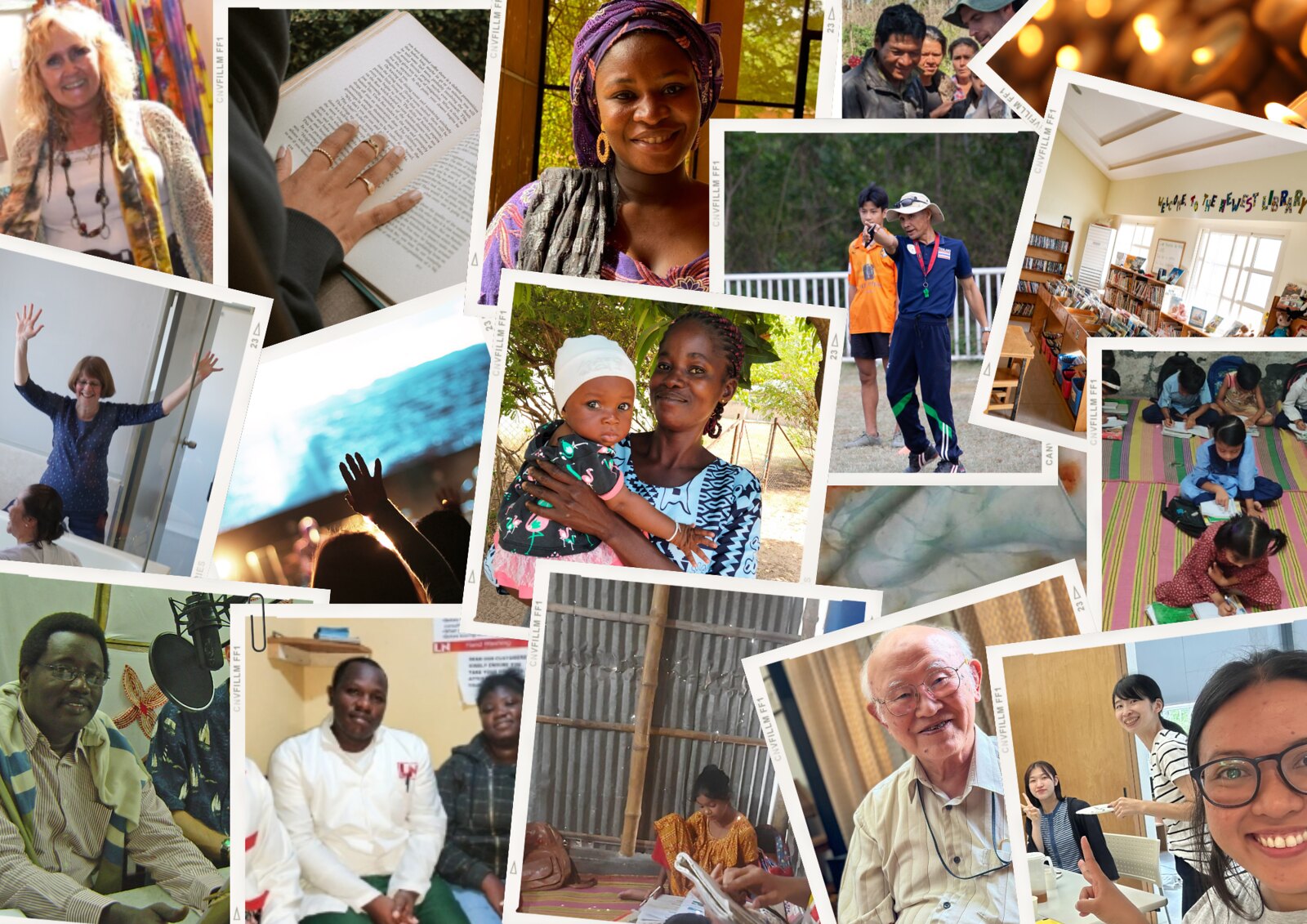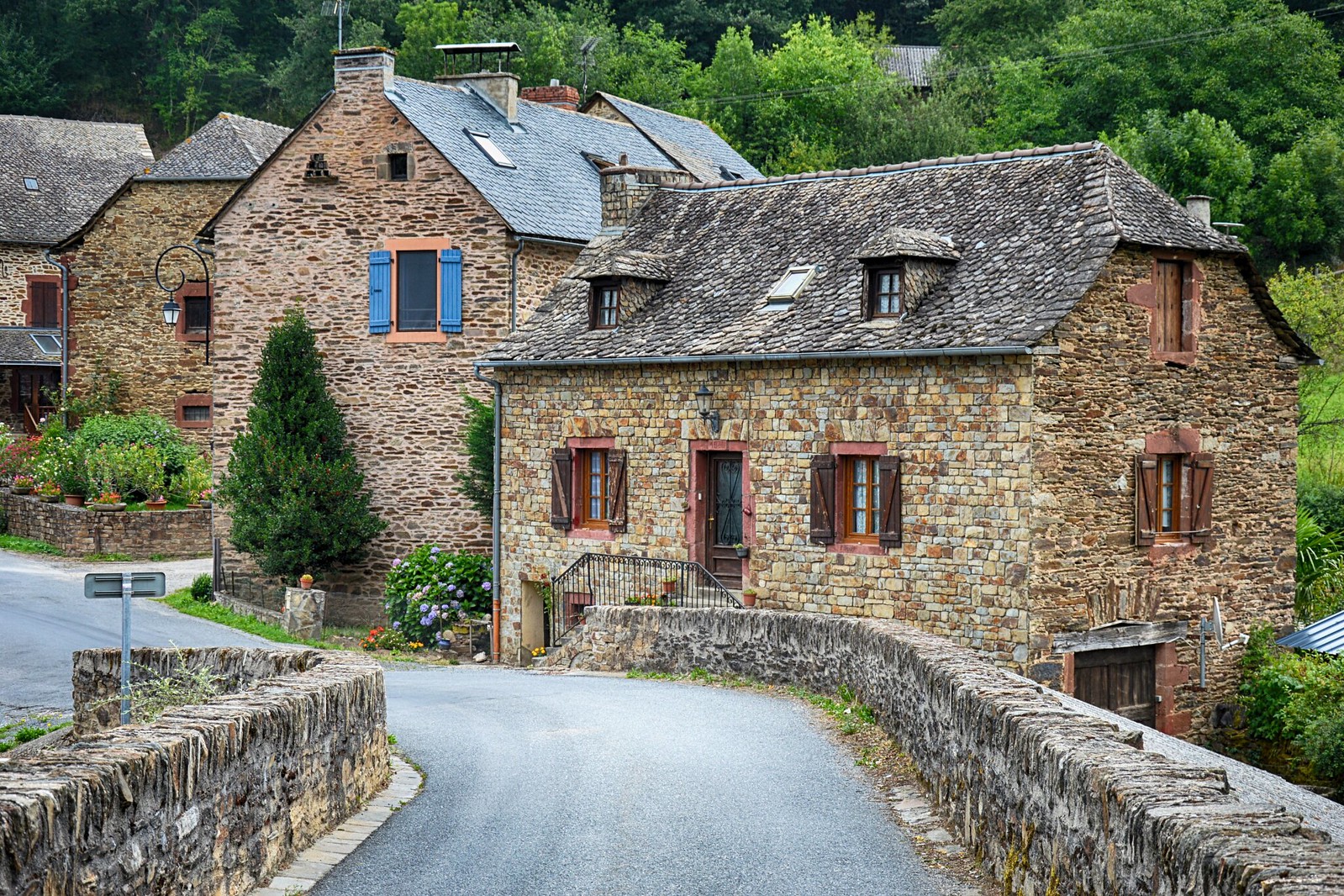Loving the oppressor (and not only the oppressed)
By Denise Poon | Myanmar in South Asia

Mandalay is the former capital of Myanmar, and is located at the very center of the country. This central region is where the Bamar majority people group live, and where Sandra and Tim would like to move to in order to share about Jesus with the Bamar - Photo courtesy of Magdalena Roeseler.
As foreigners, Sandra and Tim already get looks. It happens as Sandra goes to the market, her blonde hair bright in Southeast Asian sunlight. It happens as Tim hops on the bus in Yangon, his jeans contrasting with the common longyis men and women wear in Myanmar. And it happens when they tell people that they have a heart to build relationships and share the gospel with the Bamar people.
“We’ve gotten some interesting reactions from people when we tell them we want to reach the Bamar,” Sandra says. “There are a lot of people just see them as having oppressed others.”
Myanmar has a long, complicated history when it comes to its ongoing ethnic conflict, and it is one of the fundamental characteristics of its society and political landscape. The nation is comprised of over 135 ethnic groups, with the majority Bamar people making up about two-thirds of the population.
The Bamar control the military, and thus hold power (despite Myanmar’s attempts to move towards greater accountability and democracy since it opened to the world in 2010) – and it is the Burmese military that has been raging a bitter, long-standing war against ethnic armies (such as the Karen and Shan people). The conflict is not just about politics either.
“With religion and politics, it goes hand in hand,” says Ron, a lecturer at a Christian seminary in Yangon. “The Bamar majority people are predominantly Buddhist. So they are trying to use Buddhism as the state religion so that minority groups and other religions are suppressed.”
Christianity in Myanmar generally corresponds with the minority ethnic groups (such as the Chin, Kachin, and Karen people). The Chin, Ron's community, are about 95% Christian. But in the country as a whole, Buddhism accounts for about 85% of the population, while Christianity floats somewhere around 6% – a number that may sound unimpressive until it is compared to the 1% and 1.5% in bordering nations Thailand and Laos, respectively.
Buddhism is part of the deep cultural heritage of these Southeast Asian – and many other Asian – countries, and it is not something they will cast aside lightly in favor of another religion, especially one like Christianity, which is associated with the West.
“The Bamar see the ethnic groups who are Christians as traitors, followers of the West,” Ron says. “And the ethnic groups see the Bamar as colonizers, suppressors. The British might have left, but then the Bamar came and have suppressed us.”
While the ethnic armies are not exempt from committing abuses, the Burmese army has been the main perpetrator of some of the worst violations of human rights against the ethnic groups: murder, torture, rape, forced labor, and much more. The Rohingya, perhaps the most exploited minority group in Burma, are Muslim, and the Burmese government refuses to give them citizenship. Reports of violence and persecution against these stateless people, which many are now calling genocide, have been denied by the government.
“Political tension, ethnic tension is always there,” Ron says. “That brings a lot of barriers between us and reaching the Buddhist Bamar. This background is quite important in our Christian ministry today.”
“In general the church here has hunkered down and held out for a long time under oppression,” Sandra says, “and now struggles with reaching across ethnic barriers to the people they resent and are bitter towards.
“And it’s true: the government has oppressed a lot of people. But even the people who work in the government get lost in the grind of life here, and it’s not just one group above another group,” she says. “Life in Myanmar is difficult for everyone – except maybe the people on top, which is a very small group."
It’s an important distinction to make. Much of the violence blamed on the Bamar has been committed by the Burmese army and not Bamar civilians. Many Bamar citizens, in fact, have also faced oppression from the military. But many within minority groups find it difficult to distinguish between the army and the Bamar as a whole. For some, all Bamar are pure evil.
But these are the people Sandra and Tim hope to reach out to – the people seen as oppressors in a nation with a long history of oppression. They want to live alongside these people, speak their language, and build deep connections with them.
The Bamar live in the central region of Myanmar, where the gospel has little – if any at all – foothold. The Christian ethnic groups are clustered around the borders of Myanmar, where Christian groups and organizations are already working – but the central parts of Myanmar remain largely untouched.
“It’s pagoda after pagoda after pagoda. It’s really the heartland of Buddhism there,” Sandra says of the central region. “Even though there are Christians in Myanmar, there’s a group of people [the Bamar] that don’t know the living God. That’s the one thing that has kept us here: we feel that God has called us to be here to tell people of the living God and Jesus Christ.
“Most people don’t know the name of Jesus. Or if they do, it’s associated with a picture of some blonde man with blue eyes on somebody’s wall, which is not at all the Jesus we serve,” Sandra says.
It’s uncharted territory for most Christian cross-cultural workers, not just for Sandra and Tim, who are looking for a way to move out of Yangon (difficult for foreigners to do) and live in those central regions. Even Adoniram Judson, the prominent American Baptist missionary who was among the first missionaries in Burma, served for over forty years in the country and found the Bamar difficult to reach. Judson was able to share the gospel with the Karen and Kachin, among whom his legacy is evident today.
But God is the God of every nation, tribe, people and language, and that includes even the Bamar.
“I’m quite optimistic about Christianity in Myanmar. The political change in the country has opened a lot of opportunity for Christians. Before we couldn’t do anything, the government was always saying no, no, no,” Ron says. “They are not saying yes, yes, yes, but we are in a middle area and things have not been as regulated. We can now do more ministry.”
“We have one Bamar friend," says Sandra, "who came to know the Lord and even to this day struggles to find a place in a church, since they’re mostly ethnic group churches, like Karen or Chin churches. Our heart is to see not just one Bamar person but groups of Bamar people worshipping God together.”
SIM is committed to building a multicultural, multi-ethnic, multi-skilled ministry team in Myanmar. If you have an interest in participating in a team that is building its ministries from the ground up in Myanmar, please click the "Talk to us" button below. We are looking for more pathfinders in Myanmar.
*Names have been changed.
Related stories

In Carrie’s classroom, Jesus is shaping hearts and minds for his kingdom
When mission workers with young families leave their home country, a major concern is how their children will get on. While the parents are out serving, the kids need stability, education, and spiritual nurturing. That’s where teachers like Carrie come in. Originally from Kansas, Carrie now teaches at a mission school in Liberia, part of Dakar Academy in Senegal, shaping young hearts and minds for God’s kingdom.

Ken & Gwen Baker have spent 40+ years engaged in mission work and adventures with God
Ken and Gwen Baker have retired after 43 years of faithful service with SIM — a life devoted to God, to their teammates, and to equipping others for ministry. They spent decades planting churches in West Africa, fostering intercultural ministry, and shaping mission training that continues to impact workers worldwide. As they step into a new season of life, their story serves as a powerful reminder of how God uses ordinary people, willing to follow his call, to build His church and transform lives.

What might God do in 2025?
As we step into 2025, there is a sense of excitement and expectancy among those serving in mission work worldwide. From remote villages to bustling cities, SIM’s Entity Directors are preparing for what lies ahead, trusting God to bring transformation and hope to unreached and underserved communities. To gain insight into their vision and prayers for the year, we spoke with leaders across the globe about their hopes, challenges, and how the global Christian community can pray and support their work.

